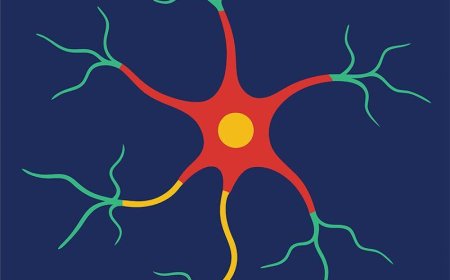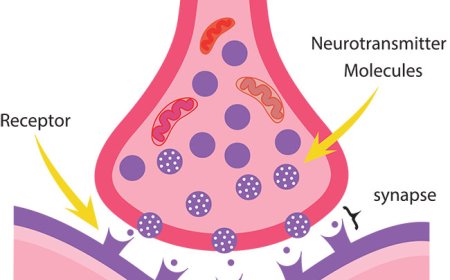Healthy Digestive System for Kids – Habits for a Happy Gut
Learn how to keep your digestive system healthy for kids. Discover good eating habits, hydration, fiber, and tips to keep your gut working well every day.
🥦 Keeping the Digestive System Healthy: Habits for a Happy Gut
Your digestive system does more than just break down food—it gives your body energy, strengthens your immune system, and helps your brain work better. That’s why keeping your digestive system healthy is so important. When your gut is happy, you feel better, think better, and grow stronger.
Let’s explore how students can build great habits to protect their digestive systems and keep everything moving smoothly from mouth to intestines.
🍎 Why Gut Health Matters
Your digestive system:
- Turns food into nutrients your body can use
- Supports your immune system (most immune cells live in your gut!)
- Keeps your brain healthy by sending signals to and from the gut
- Helps fight sickness and absorb medicine
- Removes waste and toxins your body doesn’t need
If your digestive system isn’t working well, you may feel:
- Tired
- Bloated or uncomfortable
- Gassy
- Constipated (trouble pooping)
- Unfocused or moody
Taking care of your digestive system keeps your whole body in balance.
✅ Good Habits for Digestive Health
Here’s how to keep your digestive system strong and healthy:
1. Eat Fiber-Rich Foods
Fiber helps move food through your system and feeds good bacteria in your gut.
- Found in: fruits, vegetables, whole grains, nuts, and beans
- Helps prevent: constipation and stomach discomfort
2. Drink Plenty of Water
Water keeps your intestines slippery and helps food move easily.
- Drink 6–8 cups a day
- More water = better digestion
3. Chew Your Food Slowly
Chewing helps break food into smaller pieces and mixes it with saliva.
- Gives your enzymes a head start
- Prevents bloating and indigestion
4. Limit Junk Food
Too much sugar, fat, and fried food can hurt digestion.
- These foods slow digestion and harm good bacteria
- Treats are okay sometimes—just not all the time
5. Move Your Body
Exercise helps food move through your intestines.
- Try walking, biking, dancing, or playing outside
- Just 30–60 minutes a day helps your gut work better
6. Get Plenty of Sleep
Your gut needs rest to recover and repair.
- Aim for 9–11 hours of sleep each night
- Sleep helps your body balance digestion and hunger
7. Stay Calm and Manage Stress
Stress can upset your stomach and slow digestion.
- Try deep breathing, talking to someone, or journaling
- A calm brain = a calm belly
🦠 Feed Your Gut Bacteria
Your intestines are home to trillions of bacteria, and many are very helpful! They:
- Help break down food
- Make vitamins
- Protect against bad germs
- Keep your immune system strong
You can feed these “good bugs” with:
- Fiber-rich foods
- Yogurt (with live cultures)
- Fermented foods like kefir or sauerkraut
Avoid too much processed food, which hurts these helpful microbes.
❌ What Hurts the Digestive System?
Try to avoid these digestion troublemakers:
- Eating too fast
- Too much junk food or soda
- Not drinking enough water
- Holding in poop too long
- Sitting too much without moving
- Stress or anxiety
These habits can lead to gas, constipation, or long-term gut problems.
🎉 Fun Facts About Digestive Health
- Your gut has its own nervous system called the “second brain”
- Healthy poop means healthy digestion—it should be soft and easy to pass
- Laughing helps your digestive muscles relax
- Bananas, apples, oats, and beans are superfoods for your gut
- Good gut health can even boost your mood and memory!
🧠 Vocabulary
- Fiber – Parts of plants your body can’t digest but that help clean out your gut
- Constipation – Trouble pooping or going to the bathroom
- Gut bacteria – Tiny living things in your intestines that help with digestion
- Hydration – Getting enough water to stay healthy
- Enzymes – Proteins that break food into smaller parts
- Probiotic – Good bacteria found in foods like yogurt
- Processed food – Food that has been heavily changed or contains lots of added sugars and fats
- Digestion – How your body breaks down and uses food
- Bloating – When your belly feels too full or gassy
- Second brain – Nickname for your gut’s nervous system
✅ Interactive Quiz: Gut Check!
1. What helps food move through your intestines?
A. Sleep
B. Fiber and water
C. Ice cream
D. Sugar
2. What kind of food feeds healthy gut bacteria?
A. Fried food
B. Candy
C. Fiber-rich food
D. Soda
3. Why should you chew food slowly?
A. To waste time
B. To mix it with saliva and help digestion
C. To make it taste worse
D. To drink more water
4. What is a sign your gut might not be healthy?
A. Soft and easy poop
B. Feeling tired or constipated
C. Eating fruits and veggies
D. Drinking water
5. What can help calm your digestive system?
A. Stress
B. Soda
C. Deep breathing
D. Skipping sleep
🧒 Kid-Friendly Summary
Your digestive system loves healthy food, water, movement, and rest! Eat fiber, drink water, chew slowly, and stay active to keep your gut happy. When your digestion is working well, you’ll feel better, grow stronger, and have more energy every day.





















































